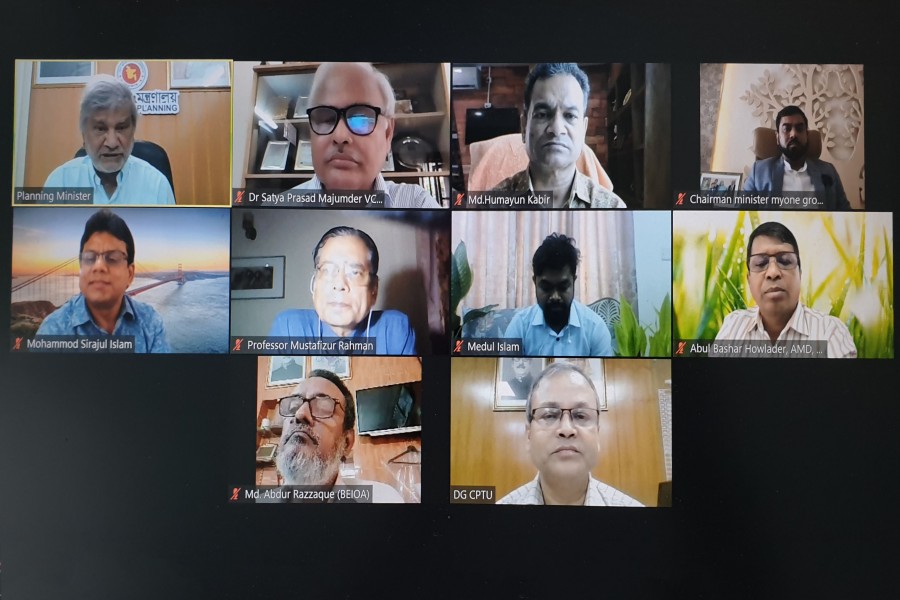Electronic products, made in Bangladesh, are not getting priority in the government procurement process.
To solve the problem, the Public Procurement Rules (PPR) should be amended in favour of the domestic electronics industry, experts said at a webinar on Tuesday.
They said if policy favourable to the domestic industry is formulated, country’s economic development will accelerate in the 4th industrial revolution (4IR).
Bangladesh Electrical, Electronics and Home Appliance Manufacturing and Exporters Association (BEEMEA) organised the webinar titled ‘Bangladesh in Industrialization’, said a press release.
Planning Minister MA Mannan was present as the chief guest at the webinar, while additional secretary of the Ministry of Planning Shoheler Rahman Chowdhury was present as the special guest.
Vice chancellor of Bangladesh University of Engineering and Technology (BUET) Prof Dr Satya Prasad Majumder, Distinguished Fellow at the Centre for Policy Dialogue (CPD) Prof Dr Mustafizur Rahman, president of Bangladesh Engineering Industry Owners Association (BEIOA) Abdur Razzak, chairman of Minister Hi-Tech Industrial Park and vice president of Bangladesh TV Manufacturing Association Abdur Razzak Khan, and additional managing director of Walton Hi-Tech Industries Limited Abul Bashar Howlader were panel speakers at the webinar.
BEEMEA Secretary General Mohammad Sirajul Islam presented the keynote paper.
In his keynote, Mohammad Sirajul Islam said with huge investment in research and development, the industry makes electronics products that are suitable to use in the local weather and infrastructure.
The BSTI standard certificate is mandatory for domestic products. However, it is not mandatory for similar kind of imported foreign products, he mentioned.
As a result, low-quality foreign products enter the country while domestic products are being overlooked.
“BSTI certificate should be mandatory for imported foreign products as well”, he said. “The domestic-made products should also be given priorities in government procurement as well”.
The planning minister said, ‘It’s very encouraging that there are about 5,000 institutions involved in the country’s electronics sector in which about 1.2 million people work.
“The government is providing all kinds of assistance to the domestic industries and will continue to support them”.
Dr Mustafizur Rahman said electronics and light engineering sectors are the future of the country’s economy and employment. They are contributing to the local market through value addition, import substitution and export earnings.
“So, the sector should be prioritised in terms of industrialisation and trade policy.
Prof Satya Prasad Majumder said policy support is a must for domestic electronics products which are related to the 4th industrial revolution (4IR).
“In addition to tax benefits and tax holidays for the domestic electronics industry, a new section needs to be added to the PPR rules.”
Industry-academia collaboration is essential for the local high-tech industry, he said.
Shoheler Rahman said the purpose of the PPR rules is to create equal opportunities for all local and foreign organisations so that they can take part in the competition. “We are planning to issue a circular with instructions so that there is no deviation from this policy as many bidders break the PPR law”.


